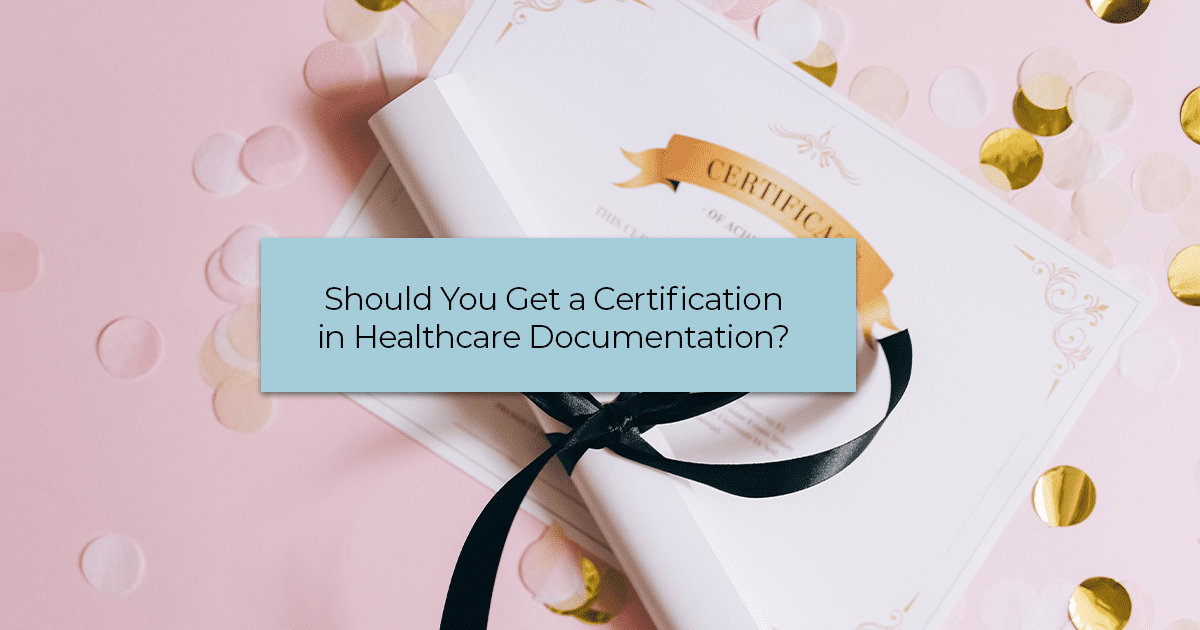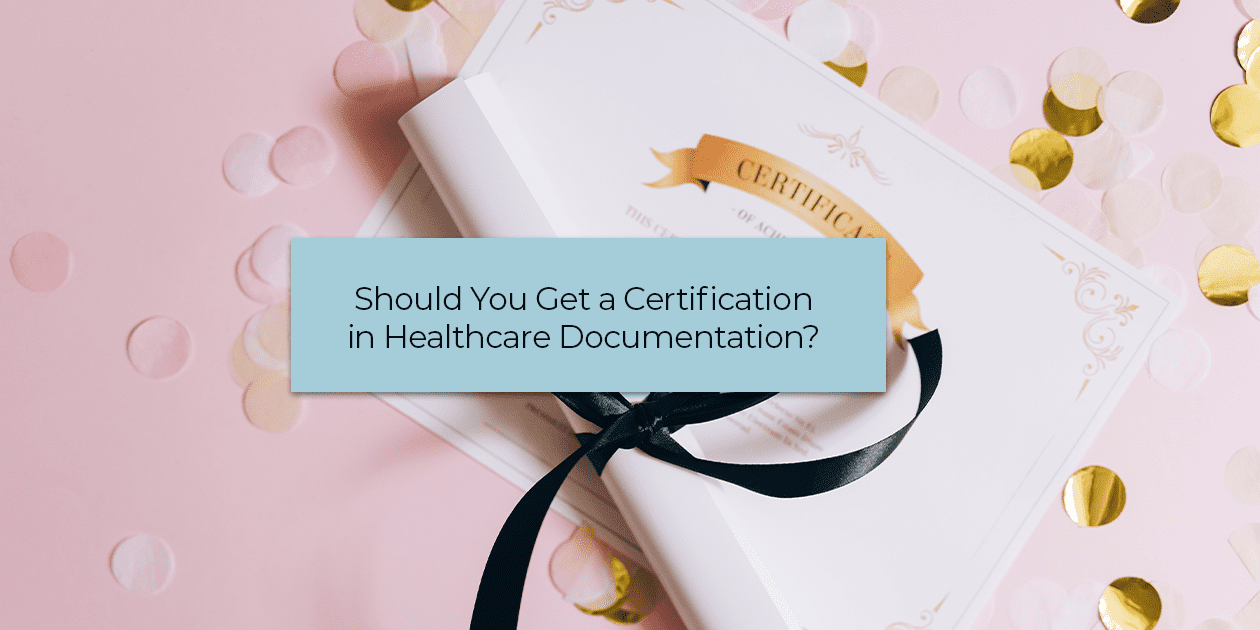Contact 1-800-466-1535 (250) 448-4670
Is Career Training Right For You? Take The Free Quiz |

Are Work From Home Jobs in Medical Transcription Real?
June 23, 2014
Learning The Language of Medicine
July 7, 2014Why Get Certified?
Becoming certified as either a Registered Healthcare Documentation Specialist (RHDS) or a Certified Healthcare Documentation Specialist (CHDS) is very important to your HDS career. Getting certified is more than just a bunch of letters after your name, it speaks to the professionalism and initiative you bring to the table. Try to get your certification in healthcare documentation as soon as possible after you graduate from your Medical Transcription/Healthcare Documentation course, while everything is still fresh in your mind. Even before you get your first job, studying for your credentialing exam should be a top priority. Being as prepared and educated as possible will bring better job opportunities.
Getting a Certification in Healthcare Documentation Makes a Difference
As a new Medical Transcription/Healthcare Documentation Specialist who is not familiar with credentialing, you might think, “Should I get a certification in healthcare documentation? It doesn’t necessarily mean that I get paid more!”
The truth is that certification opens doors. It will connect you with people that you need to know in the healthcare documentation industry. It differentiates you in a job application and proves that you have a competence level that other people might lack. You will be part of a network of professionals who have a passion for their careers and for making a difference in the world of healthcare documentation.
The Association for Healthcare Documentation Integrity, or AHDI for short, is CanScribe’s governing body and offers the Level 1 and Level 2 certification courses. In this article, AHDI explains why you should get certified:
Certification in healthcare documentation makes a difference to the patients whose care depends your on precise documentation, to employers who must hire highly qualified and trusted healthcare documentation specialists, and to yourself for the satisfaction for attaining certification. The four letters that will follow your name will make a powerful statement about the expertise you bring to the table. Ultimately, becoming credentialed will:
- Prepare you for new healthcare documentation positions in the EHR.
- Validate your breadth of knowledge and skills to employers, which may give you access to preferential hiring/employment practices.
- Demonstrate that you are trained and certified in HIPAA compliance.
- Send the message to healthcare delivery that healthcare documentation specialists are an allied health profession with an accountable scope of practice.
- Demonstrate you take initiative and go above the minimum requirements.
- Distinguish you from those without a credential.
- Raise employer’s confidence in you when introducing new technologies or services.
- Keep you marketable in the event of cutbacks or mergers.
- Get your foot in the door as a new graduate.
If that isn’t enough incentive to get certified, AHDI has created credentialing lapel pins for you to flaunt at conferences! These snazzy pins will be the talk of your social groups and should have you ‘running’ to the credential exam webpage!
AHDI wants you to succeed regardless of your individual learning style, and they provide you with an abundance of resources and study tools to help you pass your exams and to become RHDS and CHDS certified. These resources include exam blueprints, prep resources and materials, study groups, and practice exams.
Ask Us If You Have Questions About Getting Your Certification in Healthcare Documentation
If you have more questions about what certification means for you, contact CanScribe or our documentation association AHDI. If you aren’t currently a Medical Transcription/Healthcare Documentation Specialist, you can learn if online learning is right for you by taking our distance learning assessment.
You can also find out more about jobs in Medical Transcription and certification in healthcare documentation by keeping an eye on our blog. Don’t forget to follow CanScribe on Facebook, Linkedin, or Instagram for more.



